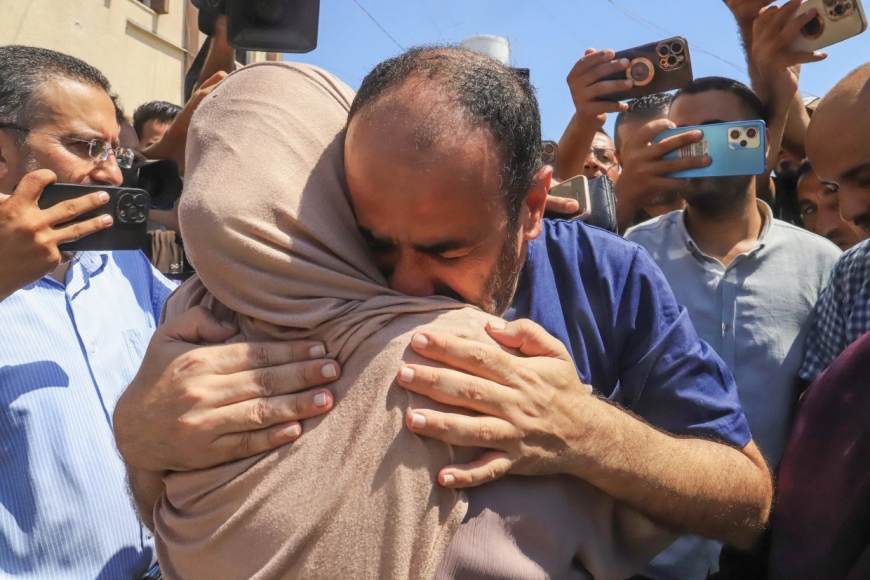Dr. Muhammad Abu Salmiya, the director of Gaza City’s Al-Shifa Hospital, has leveled serious accusations against Israeli authorities, alleging mistreatment of Palestinian prisoners following his release after seven months in detention. His remarks come amid heightened tensions and controversy surrounding a recent mass release of detainees, which has sparked intense debate within Israel.
Abu Salmiya, who was released along with 54 others, including Palestinian prisoners still in their gray prison uniforms, spoke out about his ordeal shortly after regaining freedom. He accused Israeli medical staff of subjecting prisoners to torture, a violation of international norms and human rights.
"When you seek treatment, you are tortured by the nurse and doctor, and this is against international conventions," Abu Salmiya stated in an interview with NBC News in Gaza. He further described the conditions endured by Palestinian detainees as unprecedented in the history of the prisoner movement.
The release of Abu Salmiya and others has drawn sharp criticism and polarized opinions within Israel. Itamar Ben Gvir, the ultranationalist Minister of National Security, condemned the move as a security risk and called for accountability within the Israeli government. Benny Gantz, a prominent figure in Israeli politics, labeled the decision a moral and ethical lapse, particularly concerning the inclusion of individuals allegedly involved in previous attacks on Israel.
In response to the accusations, Israeli authorities have defended their actions, stating that they operate within the bounds of the law and ensure the basic rights of detainees are upheld. The Israel Prison Service, however, did not directly address Abu Salmiya's specific allegations of torture.
The controversy underscores broader issues surrounding Israel's management of Gaza, including its military operations and policies affecting civilian infrastructure such as hospitals. Al-Shifa Hospital, Gaza’s largest medical facility, has been a focal point in the conflict, with Israel accusing Hamas of using it as a shield for military operations—a charge vehemently denied by hospital administrators and Hamas officials.
International observers and humanitarian organizations have expressed concern over the escalating situation, calling for adherence to international humanitarian law and greater protections for civilians and medical personnel in conflict zones.
As the fallout from these developments continues to unfold, the implications for regional stability and international relations remain uncertain. The accusations and counterclaims highlight the complex dynamics and enduring challenges in the Israeli-Palestinian conflict, with both sides vehemently asserting their positions amid ongoing tensions.














































